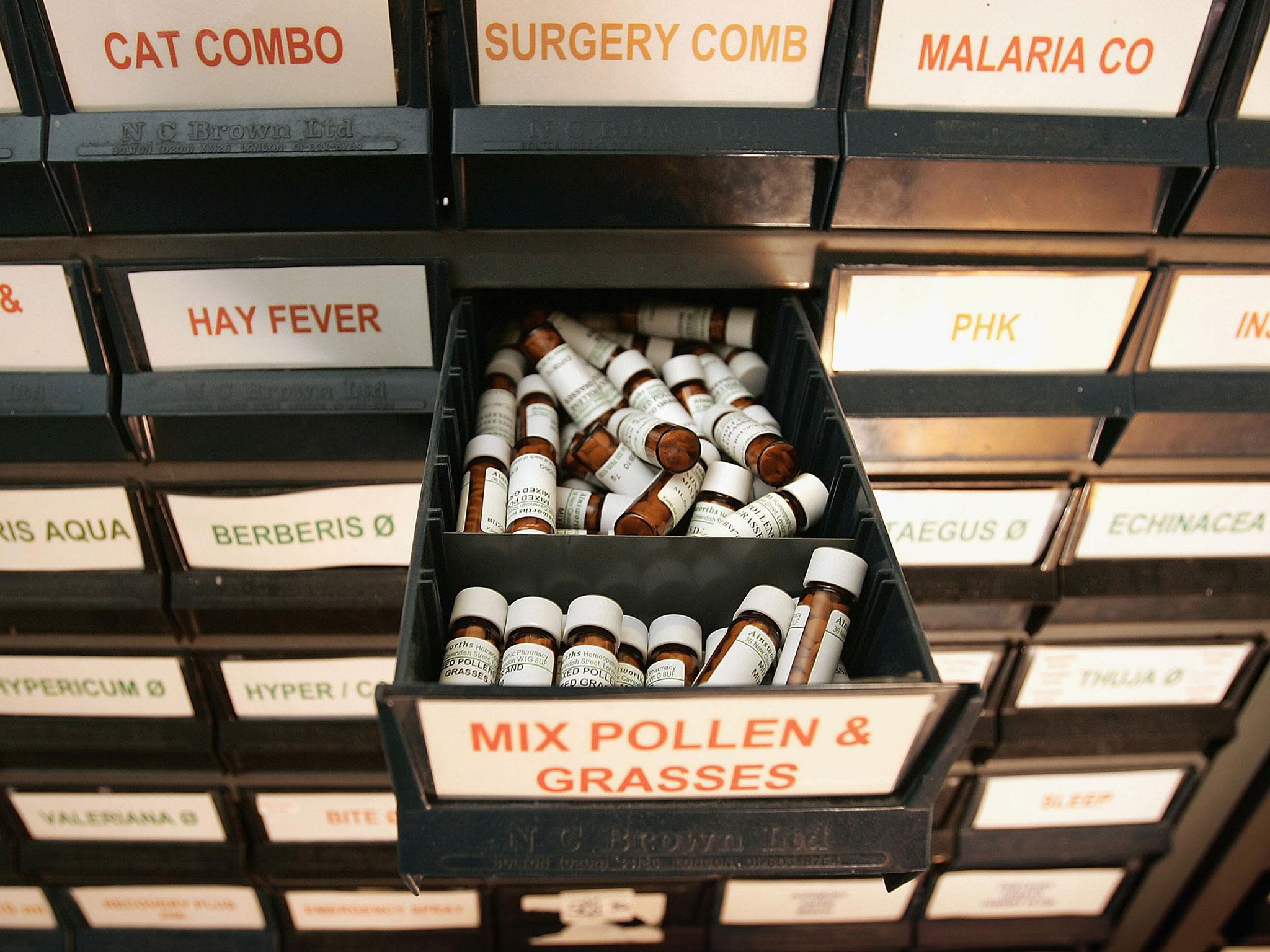The Independent's journalism is supported by our readers. When you purchase through links on our site, we may earn commission.
Thank God the NHS has come to its senses over homeopathy
For a Health Secretary so roundly lambasted for his work, keeping homeopathy on the NHS for this long almost seems like a personal joke


Your support helps us to tell the story
From reproductive rights to climate change to Big Tech, The Independent is on the ground when the story is developing. Whether it's investigating the financials of Elon Musk's pro-Trump PAC or producing our latest documentary, 'The A Word', which shines a light on the American women fighting for reproductive rights, we know how important it is to parse out the facts from the messaging.
At such a critical moment in US history, we need reporters on the ground. Your donation allows us to keep sending journalists to speak to both sides of the story.
The Independent is trusted by Americans across the entire political spectrum. And unlike many other quality news outlets, we choose not to lock Americans out of our reporting and analysis with paywalls. We believe quality journalism should be available to everyone, paid for by those who can afford it.
Your support makes all the difference.Sometimes, famous Americans say silly things on Twitter. Who knew? In this instance, I’m not talking about the person you’re probably thinking about. I don’t profess to know Donald Trump’s views on homeopathic remedies any more than I know his views on gardening or knitwear, though I’m sure in both cases, no one does either as well as he, and he’ll be tweeting about them any day now.
Gwyneth Paltrow, however, has nailed her colours firmly to the mast: she thinks homeopathy is great. Her website Goop tweeted this morning about how, outside the United States, homeopathic remedies are often the first port of call for treating ailments. Answers, please, on the back of a postcard as to which countries these are – I can only imagine Gwyneth Paltrow and the folks at Goop are choosing to visit some pretty backwards places when they fall ill on holiday. It’s amazing any of them survive their trips to write such drivel.
Fortunately, the UK is not among them. In fact, it might not offer homeopathy on the NHS at all, after the health service included it in a list of seven treatments it recommended to be blacklisted by staff from early next year. GPs may no longer be allowed to refer patients to one of the two remaining centres providing it, saving the taxpayer anywhere between £100,000 and £5m annually, according to the Good Thinking Society. It’s difficult to call this a smart move, given that the effectiveness of homeopathic remedies have always been dubious at best. That it might finally be happening must be welcomed, but why has it taken so long?
Health Secretary Jeremy Hunt is on record as having supported homeopathy as far back as 2007. To his credit, he has since admitted he wasn’t entirely in command of all the facts when he signed the early day motion on the topic a decade ago, but it doesn’t take 10 years to get up to speed. Since then, there have been plenty of reports decrying the practice, while the Chief Medical Officer has called it “rubbish”, and complained that practitioners have been allowed to continue to “peddle this way of life to prevent malaria and other infectious diseases” at the expense of the taxpayer. For a Health Secretary so roundly lambasted for his work, keeping homeopathy on this long almost seems like a personal joke.
For those still blissfully unaware of what homeopathy entails, it might be possible to mistake it for a “natural” form of vaccination. It runs on the idea that “like cures like”, and that small quantities of something harmful, diluted with water, powder or something similar, can cure something much larger. The problem, of course, is that inoculation trains the immune system to recognise and resist things that are harmful to the body. Diluting a substance in the hope that a small enough quantity will be spread throughout the body isn’t the same thing. There is scant evidence to prove that it has any benefits beyond that of a placebo. In the nightmare scenario, it risks exacerbating illness.
Perhaps it is now only being binned because of bureaucracy, or maybe those reviewing its effectiveness were just unbelievably thorough. It doesn’t really matter now the decision has been taken. Some might say that by bringing it under the auspices of the NHS, homeopathy was made safer by allowing it to be practiced by people under more scrutiny than if allowed to work independently. That’s an awful lot of money to spend to make snake oil palatable.
Kicking homeopathy into touch is a step in the right direction. It will free up much needed funds for any number of struggling areas of the NHS right at the time of year when the service comes under the most strain. It demonstrates that sometimes cuts can be good, and that evidence-driven reform is possible. I fail to see the downside of this decision.
Of course, you are free to make your own decisions in life, but when it comes to your health, why risk it? The NHS gets many things wrong, but this isn’t one of them.
Join our commenting forum
Join thought-provoking conversations, follow other Independent readers and see their replies
Comments